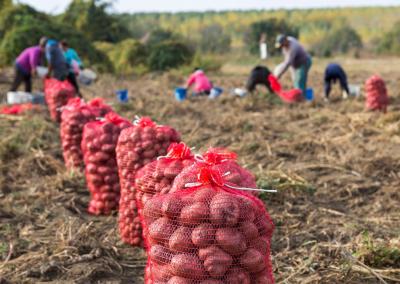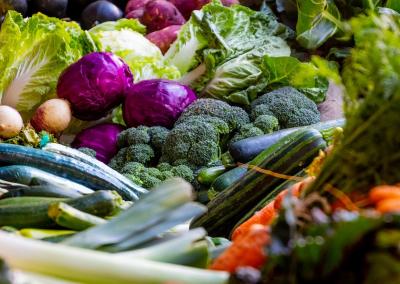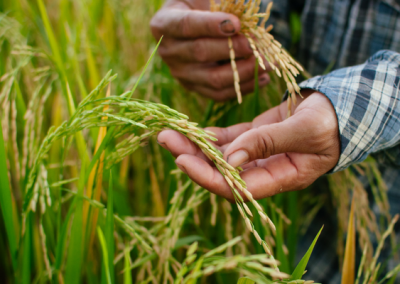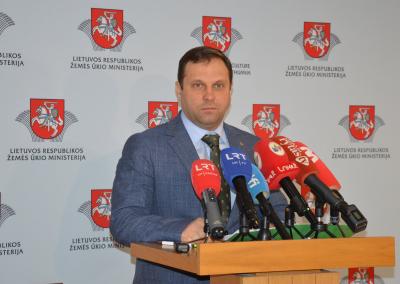I. Hofman: the paradox: agricultural prices are stagnating, food prices are increasing
European Union (EU) agriculture and fisheries ministers, meeting in Brussels, set out their views on current issues facing the agricultural sector: the state of markets, protein supply, access to plant protection products and other challenges facing member countries.
Speaking about the situation in the EU agricultural sector, Agriculture Minister Ignas Hofmann stressed that the challenges facing the sector remain. The Minister recalled that at the Council of EU Agriculture and Fisheries Ministers in May, he had drawn attention to the severe damage suffered by the Lithuanian crop sector as a result of prolonged frost. The Ministry of Agriculture has written to the European Commission (EC) with detailed information and statistics on the impact of the frost on the country's crop sector. A swift decision on the granting of support from the Agricultural Reserve is expected.
„The situation in the cereals sector is worrying. Recently, we have seen grain purchase prices falling, while fertiliser prices have been rising, which is reducing farm profitability. The situation therefore needs to be monitored closely and measures taken if this stressful trend continues. And another paradox is that while prices for agricultural products (e.g. milk, cereals) are stable or even falling, food prices for consumers are rising," said Minister Hofmann.
The Agriculture Minister also underlined the support aspect of the support to Ukraine.„We are in favour of further liberalisation of trade in agricultural products with Ukraine, while ensuring the effective opening of the EU market. The agreement reached on the revision of the EU-Ukraine Free Trade Area is a good step towards a long-term relationship, but the agreement itself could be more ambitious. Furthermore, we are concerned about the possibility envisaged for any Member State to activate the safeguard mechanism, as this would fragment the EU single market. We welcome the increased tariffs on Russia and Belarus, which came into force on 1 July, and believe that the list of restricted products should be extended," said the Lithuanian Minister of Agriculture.
More flexible financing of direct payments would contribute to faster protein supply
EU ministers reported on the initiatives taken by member states to diversify sources of protein for food and feed and outlined their views on what action should be taken at EU level to support the diversification of protein sources for food and feed.
„We use the instruments of the Common Agricultural Policy to promote the production of protein crops in Lithuania. For example, in our country, coupled support is paid for the cultivation of protein – nitrogen fixing – crops. We also provide support to those participating in organic schemes by imposing an obligation to grow protein crops on a certain size of land. Support is also available under rural development interventions. However, certain Member States, including Lithuania, have limited possibilities to provide support for protein crops due to the insufficient level of funding for direct payments. More ambitious financing of direct payments in the new period would contribute to faster protein supply. Adequate and sufficient funding is essential to achieve a real breakthrough," the Minister stressed.
According to Minister Hoffmann, the shrinking list of plant protection products available for use, and sometimes even the shortage of the products themselves, poses additional challenges.
„Targeted investment and coupled support is needed. Increasing coupled support for protein crops at EU level could be considered. However, this cannot be at the expense of other sectors. Moreover, it is important that support is provided through voluntary incentive measures rather than through mandatory ones. We need to look at the whole supply chain and support not only the production of protein crops, but also processing. International trade is also important in order to ensure the availability of plant proteins, especially soya. The EU has a high bar for standards, and we need to meet it. Diversification of our markets is also important. We should seek to maximise Ukraine's potential in this area. Transporting soy products from South America across the Atlantic Ocean on polluting tankers cannot be an example of sustainability," the Minister said.
Declining availability of active substances poses a real threat to the productivity and competitiveness of the EU agricultural sector
According to Minister Hoffmann, our farmers are increasingly faced with situations where there are simply no effective measures to fight weeds, pests or diseases. The declining number of active substances also poses another major problem, namely resistance.
„We are approaching a situation where plant protection products that are currently available for use will become less effective, or no longer work, due to low rotation. Therefore, alternatives should be available before decisions are taken to withdraw plant protection products from the market. Of course, it is important to maintain high safety standards, to ensure that decisions are not detrimental to biodiversity, in particular pollinators, but at the same time not to leave farmers without an effective tool," said the Minister.















































































































